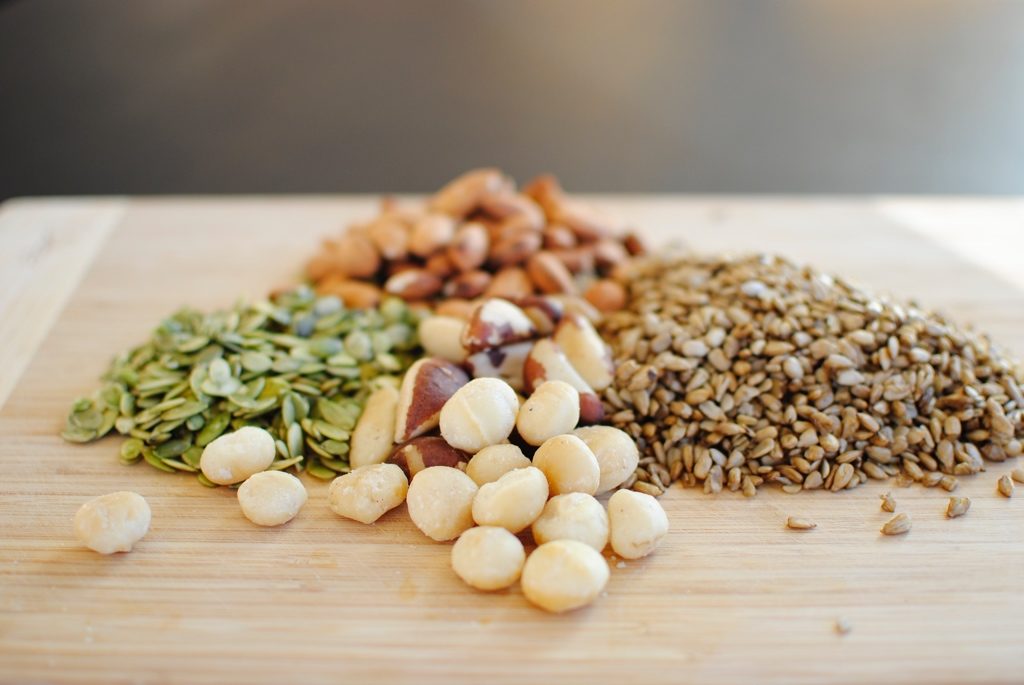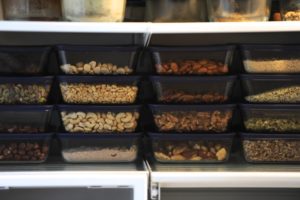Alakazam - Answers from Joan
Keeping My Nuts Fresh
This question was answered for Cindy Laughlin who indicated that her nuts went bad faster when they had been soaked and dehydrated. She wanted to know what to do to keep from wasting such precious foods.
I recommend soaking and dehydrating brown-skinned nuts and large seeds (sunflower and pumpkin) in advance of need. They form a large part of my “ready-ingredients” pantry. The soaking is to remove the enzyme inhibitor (normally deactivated by roasting) which would, if allowed to remain, disturb your digestion.
The steps that I take to avoid waste are simple: I only buy and prepare enough nuts to fill my 6-cup pyrex containers (enough to last between 1-6 months), I soak them for about 8 hours, I dehydrate the for about 24 hours, I allow them to cool down to room temperature before I contain them, I store them in the refrigerator, and I try to use them within six months.
The most important step that people fail to include is allowing the nuts and seeds to cool to room temperature before storage. Even though most people dehydrate at low temperatures somewhere between 105-115 degrees, this is still hotter than room temperature and so if they’re contained without an opportunity to cool down, then condensation can form inside the container – MOISTURE – which is the enemy of preservation.
I don’t have to store the nuts and seeds in my refrigerator, but I choose to because I want them to have the chance to remain as fresh as possible for as long as possible. Although the soaking process reduces the fat in the nuts and seeds (the fat is used to fuel or pay for the transformation of the nut or seed from dormant to alive/alert) the nuts and seeds can still go rancid over time. So refrigeration (or freezing) helps to guard against rancidity.


